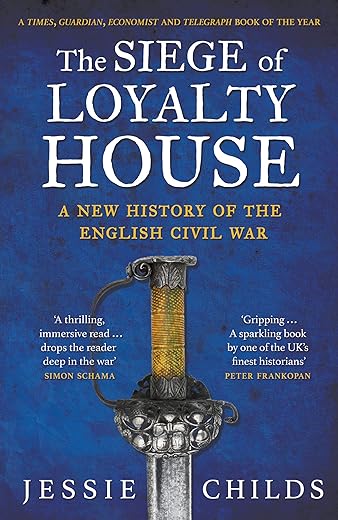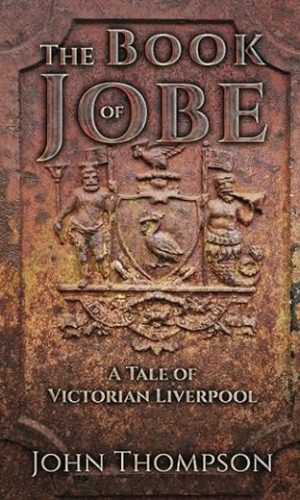The Siege of Loyalty House: A new history of the English Civil War
£11.40£12.30 (-7%)
**A TIMES, GUARDIAN, TELEGRAPH, SPECTATOR, THE CRITIC, MAIL ON SUNDAY, ECONOMIST AND PROSPECT BOOK OF THE YEAR**
‘A gifted narrative historian, eloquent, graceful and witty; the stories she tells are the ones we all should know’ Hilary Mantel
It was a time of climate change and colonialism, puritans and populism, witch hunts and war . . .
This is the story of a home that became a warzone. Basing House in Hampshire saw one of the longest and bloodiest sieges of the English Civil War. Defended for over two years by artists and aristocrats, actors and apothecaries, women and children, it became a symbol of royalist defiance and a microcosm of the wider conflict.
Drawing on unpublished manuscripts and the voices of dozens of soldiers and civilians, award-winning historian Jessie Childs weaves a thrilling tale of war and peace, terror and faith, savagery and civilization.
__________
‘Extraordinary, thrilling, immersive … at times almost Tolstoyan in its emotional intelligence and literary power’ Simon Schama
‘Compellingly readable… [a] beautifully written and lucid account’ Mail on Sunday
‘Brilliant. Original. Gripping.’ Antonia Fraser
‘Beautifully written and gripping from first page to last. A sparkling book by one of the UK’s finest historians’ Peter Frankopan
‘The Siege of Loyalty House is not only deeply researched. Childs has composed a wonderfully poetic narrative and adds a touch of the gothic’ The Times
‘Successfully brings the ghastliness of the period to life, dramatically, vividly and with pathos’ Charles Spencer, Spectator
Read more
Additional information
| Publisher | Vintage (18 May 2023) |
|---|---|
| Language | English |
| Paperback | 336 pages |
| ISBN-10 | 1784702099 |
| ISBN-13 | 978-1784702090 |
| Dimensions | 12.8 x 3 x 19.6 cm |










by Key Perspective
Less is certainly more here. Very readable and much enjoyed.
by Carlton
I am already somewhat familiar with the broad details of the English Civil War, having read several books about this over the past couple of years, so I found this history focussed mainly upon the defence of a single location, Basing House (known as Loyalty House) fascinating and enlightening. Although Childs picks particular individuals and events to describe to create a “collage” patchwork history, I felt that this was done skilfully and successfully built a richly illustrative story of the Civil War.
Basing House was an old castle from the twelfth century with an adjoining “new” house (with over 300 rooms) from the fifteenth century which was a fortification used by Royalists during the English Civil War to disrupt communications between the West of England and London.
As well as being the Civil War story of Basing House, which was owned by John Paulet, the fifth Marquess of Winchester, this is also the story of London merchants, Marmaduke Rawdon and John Venn.
Childs starts the book building the background to the Civil War by describing the slowly divergent outlooks of Rawdon and Venn, who both serve in the Honourable Artillery Company (artillery meaning muskets at this time). This description of the military companies funded and manned by members of the London merchant guilds was really interesting, as I had not previously understood how the armed Parliamentary militia had been created.
Childs describes the outset of the Civil War in 1642 and how Rawdon, the Anglican Royalist (insultingly termed malignant by Parliamentarians) unsuccessfully tries with other London merchants to maintain peace between the King and Parliament, as war is bad for business. However Rawdon abides by his oath to the King and follows King Charles to Oxford when the King deems it unsafe in London.
Venn however is more protestant, and therefore becomes loyal to Parliament rather than the King.
Childs also takes the time to illustrate why landowners (with the example of Edward Pitt of Stratfield Saye) who tried to take a middle path between Royalist and Parliamentary forces could end up choosing one side of the other by suffering their dependents.
Rawdon with an infantry regiment he has financed, is asked by the King to defend Basing House, near Basingstoke in Berkshire, which is owned by the Roman Catholic Marquess of Winchester (as a peer, he is called by his title, Winchester, rather than by his surname). Winchester already has a militia guarding the house, which is supplemented by more Roman Catholics,and local conscripts.
Childs’ story now moves to consider the defence of Basing House and tries to discuss the difficult relations between Rawdon and Winchester, who each command a regiment stationed at Basing House, but with Rawdon being Anglican and Winchester a Roman Catholic.
For the summer of 1643, Childs is able to quote from the diary of an anonymous besieged person (probably written by an officer, due to the nature of the entries).
Extracts are skilfully taken from Humfrey Peake’s Meditations upon a Seige [sic] of 1646 to bring the contemporary humanity and misery of a siege within our comprehension, perhaps (the description of contemplations may be from Basing House, but this is not certain).
There are a good number of illustrations, but my one criticism would be that the author should have better described the size of Basing House, which was a small fortress, rather than a large house.
I found this an enjoyable history, peppered with interesting characters, anecdotes and facts, to make an engaging story.
by GM
I started reading this book with high expectations having read (twice) Jessie Child’s excellent book ‘God’s Traitors terror and faith in Elizabethan England’. I was not disappointed. Loyalty House is meticulously researched and throws a whole new light in a little known but important event in the history of the English civil war, giving a voice to previously unknown characters who attempted to stand up to an intolerant and dictatorial Parliament. It also brings to light a previously little considered fact that in opposition to a Puritan and increasingly tyrannical parliament, Catholics and the Protestant royalists stood as one and faught side by side forgetting their doctrinal differences. You will not be disappointed if you have any interest in this period of England’s history.
by Ribble
This is history from the front line: a view of the English Civil War (better, the Wars of Four Nations) which concentrates not on the abstract politics, but on how every aspect of society was upended, and how friends, colleagues and even families could end up on opposite sides. The author’s research into the ‘back stories’ of those involved in the siege makes for fascinating, gripping reading. She never forces the point, but the reader can’t help making comparisons with the war in Ukraine. One of the best history books I’ve read in recent years.
by jeandup
Jessie Childs has followed up God’s Traitors with this even more impressive account of a pivotal but lesser-known conflict in the Civil War. Combining a historian’s encyclopaedic knowledge of the era with Hilary Mantel’s mastery of narrative, she brings a large cast of unlikely heroes – apothecaries, printers and traders – vividly to life and marshals a messy series of events into a clear and compelling story. I finished it in two days and I’m now re-reading God’s Traitors.
by crosscutsaw
‘Not my King’ – Be careful what you wish for and definitely read this excellent book first!
by Mark D
I bought this book on a whim after reading a review somewhere, as i mostly read historical fiction.
Normally history is told about the generals or Kings, this is told about the apothecaries, printers, bakers etc. who became soldiers.
The author tells the tale with compassion, humour and a lack of moral judgment of those involved. For me this made those involved pop out of the page. Real genuine people involved in a horrible episode.
Excellent book, well researched and cited, which never becomes dry or staid.
by C. BROWN
This is a much-praised book and for very good reasons. It tells the story of the siege(s) of Basing House and in the process tells the story of the English Civil Wars and indeed of the English Seventeenth Century. Excellent character studies of the main participants of the siege and of its wider significance. Very strong recommendation.